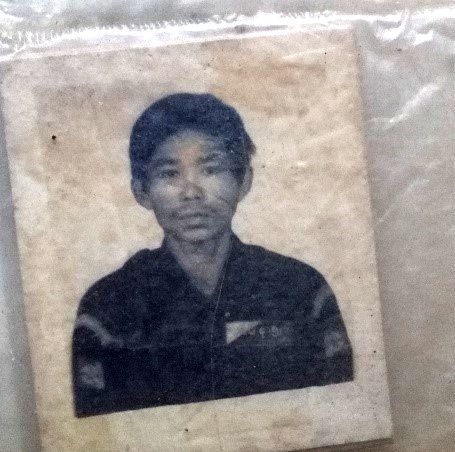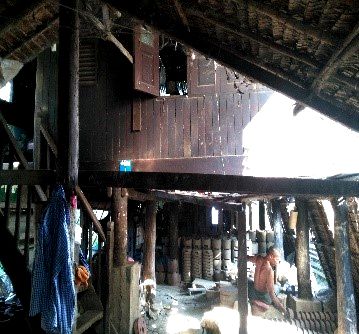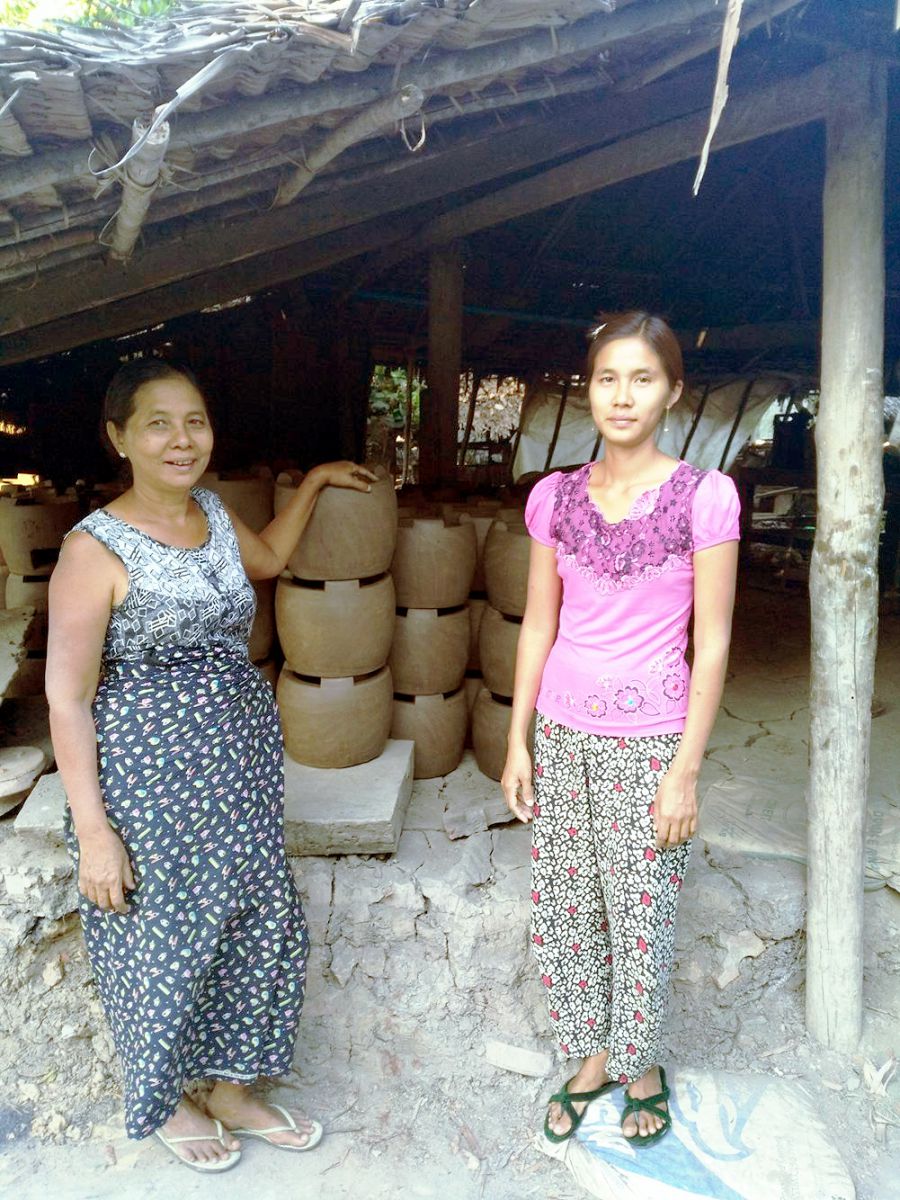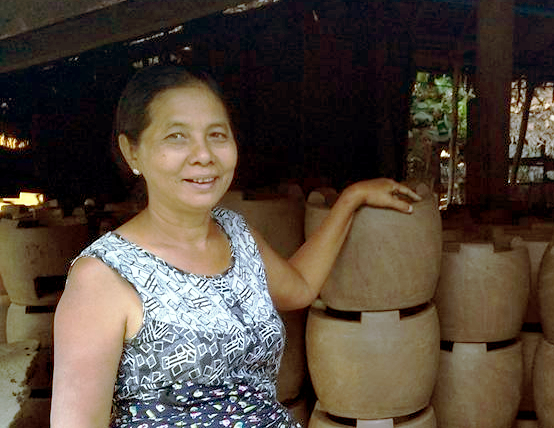Daw Htay Htay, the owner of a cookstove production unit in the Pathein region of Myanmar, is finally more relaxed and contented. But life has been far from easy for this 57-year-old woman.
She was her parents’ only child, and her mother died when Daw Htay Htay was very young. Her father, a ship docker, was unable to support her education past the third grade of primary school, then she had to start bringing in extra income.

At the age of 20, Daw Htay Htay got married to U Thot Shwe, a co-worker at the cookstoves’ production unit where she was working at the time. Each of them earned just 8 kyats per day (for reference: that is about 0,005 EUR/USD in today’s terms) and it was a year before they were able to save enough money to buy their own modest house. They had their first child after another two years and started their own cookstove production unit around the same time. By the time Daw Htay Htay turned 40 years old, the business had flourished, under the management of her husband and with Daw Htay Htay helping in the production process.
But then, within one month in 2012, both men on whom she was heavily dependent, her husband and her father, died. Daw Htay Htay was left with debts that arose with her husband’s medical expenses, three children, immeasurable sadness and the responsibility for the cookstove production, which soon suffered another setback with the death of one of the two main distributors.

Daw Htay Htay says that being a woman cookstove producer without any family support, education or training was a huge handicap for her. The one thing working in her favour was the cookstove producing experience she gained as a young woman and later in her husband’s production unit. But Daw Htay Htay did not give up. She taught herself how to manage regular production and personnel, including male workers, and the commercial aspects of the trade such as recording financial transactions and finding additional distributors.
She says that linking with a good distributor and managing the men she engages as labour have been the most difficult challenges. In addition, unlike many other women cookstove producers, she has been working on her own and has not had peers in her vicinity to interact and exchange experience with. She says that men who own cookstove production units often meet each other and even clay suppliers at tea stalls and restaurants, and negotiations frequently happen there. She could not break into those male dominated contexts even if she tried. She is also prevented from networking within the cookstove community by the fact that she has to dedicate all her time to managing the cookstove production as well as her household.

It took Daw Htay Htay four years to overcome the initial problems, including her large debts, and to stabilize her business, which she managed to do despite all the obstacles. Now she has five employees and produces between 800 and 1,000 cookstoves per month. She does not intent to grow her business beyond that level, but she would like to sell cookstoves from her own retail outlet. She is also considering opening a shop to meet other household needs, where she could get in contact with a lot of people and earn a living without the stresses of production and labour management.
As someone who could only complete three grades of primary school and was often struck by tragedy, without a mentor or support from a development organization in the form of subsidies, grants or skill training, her achievements are remarkable, but she does not seem to think so herself. Rather than boast about what all she has learned and accomplished, she modestly says that her neighbours and peers appreciate her attitude in times of strife, and she is happy that her stove production enterprise, in spite of all the hardships, has helped her bring up her children and helped them to do well in life.
This post is based on the case study developed by ENERGIA’s Technical Advisor Svati Bhogle, the designated ENERGIA consultant for gender mainstreaming in the GERES’ Strengthening improved cookstove access towards a better quality of life and environment project. She gratefully acknowledges the support received from the GERES Myanmar team in the compilation of the case study.
You may also be interested in reading about five other outstanding women entrepreneurs from Myanmar.







